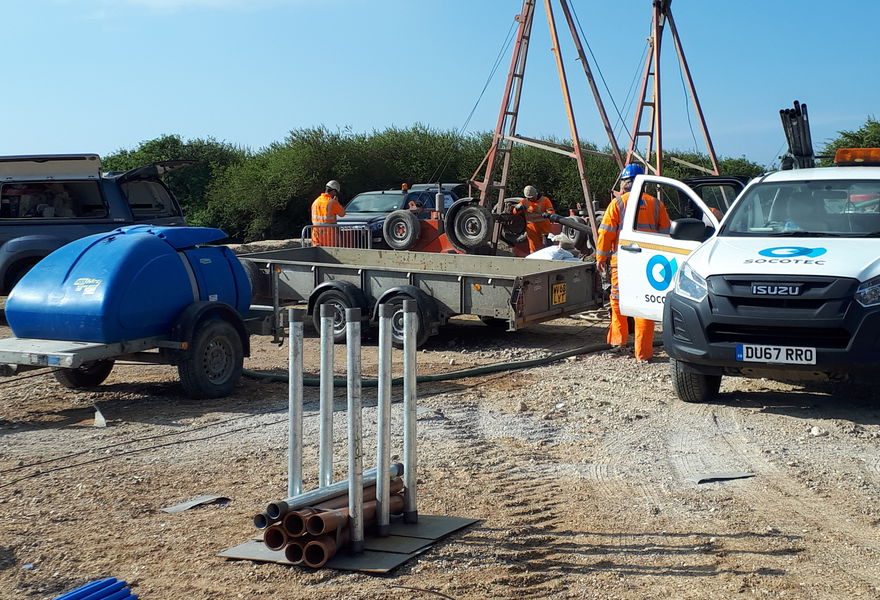Borehole logging is a geophysical technique that involves the use of downhole tools to acquire data on the physical properties of subsurface formations. It is an important tool for geotechnical investigations as it provides valuable information for engineering design and construction. In this article, we will compare different borehole logging techniques used for soil and rock characterization.
Introduction to Borehole Logging
Borehole logging is a method used to collect information on the subsurface geology of a site by analyzing the physical properties of the formations encountered during drilling. The technique involves lowering specialized tools into the borehole and measuring various parameters, such as the electrical conductivity, natural gamma radiation, and sonic velocity. The measurements are then used to create a geophysical log that provides a record of the formations encountered and their physical properties. Borehole logging is an essential tool in geotechnical engineering investigations as it provides valuable data on subsurface conditions that can be used to inform design and construction decisions.
Types of Borehole Logging Techniques
There are several borehole logging techniques that are commonly used for soil and rock characterization. These include:
● Electrical Resistivity Logging
This technique involves measuring the electrical resistivity of the formations encountered in the borehole. It is used to identify variations in lithology, water content, and the presence of mineral deposits.
● Natural Gamma Ray Logging
This technique involves measuring the natural gamma radiation emitted by the formations encountered in the borehole. It is used to identify the presence of radioactive minerals, such as uranium and thorium, and to estimate the density of the formations.
● Acoustic Logging
This technique involves measuring the speed of sound waves in the formations encountered in the borehole. It is used to determine the compressional and shear wave velocities of the formations, which are important for seismic analysis.
● Magnetic Susceptibility Logging
This technique involves measuring the magnetic susceptibility of the formations encountered in the borehole. It is used to identify variations in lithology, as well as the presence of mineral deposits.
● Caliper Logging
This technique involves measuring the diameter of the borehole. It is used to identify borehole diameter variations and to determine the orientation of bedding planes.
Advantages and Limitations of Borehole Logging Techniques
Each of the borehole logging techniques has its advantages and limitations. Electrical resistivity logging is useful for identifying variations in lithology and water content. But it is sensitive to the presence of conductive minerals. Which can affect the accuracy of the measurements. Natural gamma ray logging is useful for identifying radioactive minerals and estimating formation density. But it can be affected by the presence of borehole fluids and drilling muds.
Acoustic logging is useful for determining wave velocities and identifying lithologic boundaries, but it is sensitive to borehole diameter and the presence of fractures. Magnetic susceptibility logging is useful for identifying variations in lithology and the presence of magnetic minerals, but it can be affected by the presence of conductive minerals. Caliper logging is useful for identifying borehole diameter variations and determining the orientation of bedding planes. But it does not provide information on lithology or formation properties.
AKM Geotechnical & Logging
AKM Geotechnical offers exceptional borehole logging services to help clients understand subsurface conditions and make informed decisions for their geotechnical engineering projects. Our team of experts utilizes the latest technology and equipment to collect accurate data on soil and rock properties, including their physical, mechanical, and hydraulic characteristics.
With our state-of-the-art borehole logging techniques, we can identify potential risks and provide recommendations for site-specific designs and construction plans. Our commitment to delivering reliable and high-quality services makes us a trusted partner for clients in various industries. Contact us today to learn more about our borehole logging services and how we can support your geotechnical engineering needs.

